Douglas FirPseudotsuga menziesiiHeight: 150' average mature height Hardiness Zones: 4-8 Find my zone Aspect: mostly shade to full sun
Size Availability
The Douglas Fir is one of the most common conifers in the lower elevations around Southern Oregon and is one of our favorite trees. We have numerous old growth Douglas Fir growing around our nursery, and create a mature forest feel mixed with White and Black Oaks, Incense Cedars, Madrons, and Pines. Some of the most beautiful forests in the area are dominated by the Douglas Fir. It grows rapidly (up to 3-4 feet per year) and has very strong wood, making it an ideal choice for windy areas. It is also one of the largest trees in many forests, growing larger than any of the True Firs (
Abies sp.
) and larger than most pines except the Sugar Pine. It is not uncommon to find Douglas Fir trees with diameters near or exceeding ten feet wide in the back woods, especially in schist or limestone soils where the roots grow deep. In fact, a tree at Oregon Caves National Monument holds the record for the largest Douglas Fir in Oregon and is 13 feet in diameter. Additionally, Douglas Fir roots coming out of the ceiling in the Oregon Caves are the deepest tree roots known in the area.
Out of season.
Our main crop of most plants is available starting in late fall.
Additional batches of plugs and quarts are usually added in May.
Many of our plants are propagated in limited quantities and can sell out quickly when posted, get on the notification list below so you don't miss out. Add your email to be notified as soon as we have them back in stock:
This does NOT subscribe your email to any mailing lists, our system will only send an inventory notification message.
In the landscape, we love using the Douglas Fir for creating a wooded affect. The trees are a vibrant green and the needles are very soft, so it is one of the better trees for up close viewing. Unlike the similar-looking Colorado Blue Spruce, Douglas Fir trees are not painful to push through so they can be planted in high traffic areas. The lower branches will remain dense for decades, allowing this tree to provide privacy as an evergreen hedge.
Douglas Fir trees are quite drought tolerant and prefer deep, infrequent irrigation. In dry climates they should be watered deeply a few times each summer but don't need more water than that (once established of course, seedlings will need more water for the first few years).
Because of the eventual size of this tree, it is better to plant away from buildings, power lines, or other structures.
Douglas Fir Has Two Subspecies
Douglas Fir has two subspecies, Coastal:
Pseudotsuga menziesii var menziesii
and Rocky Mountain:
Pseudotsuga menziesii var glauca
. Our coastal seed source is mid to high elevation Northern California and these trees are more heat, drought, and cold tolerant than the Northern Coastal trees from Washington but still has fast establishment and growth. These trees are cold hardy to USDA zones 5-8. The Rocky Mountain subspecies has slightly bluer needles and handles even more drought and cold than the Northern California Coastal trees, but growth is a little bit slower with denser branching. The Rocky Mountain subspecies is cold hardy to zones 4-8. However, in a landscape setting with good soil and summer irrigation the two subspecies seem to perform roughly the same as each other. The major differences in performance are much more pronounced in wildland forest plantations where the trees are left to grow on their own with no water or care.
Conservation Grade Trees Offered
In some years we offer highly discounted conservation grade plants which are healthy and ready to take off but not suitable for our normal ornamental landscape sales. Typically conservation grade trees have crooked trunks or lack low branches. Conservation grade trees are popular for large plantings, reforestation, or wildlife conservation because you can purchase much larger trees at a much lower price than normal reforestation seedlings. When conservation grade trees are available they will be listed underneath the normal ornamental stock as 'conservation grade' in bundles of 10.
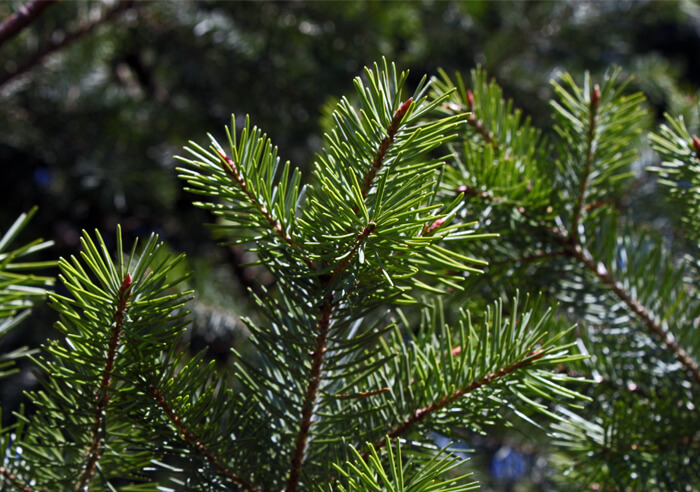
Douglas-fir foliage
Source: Commons
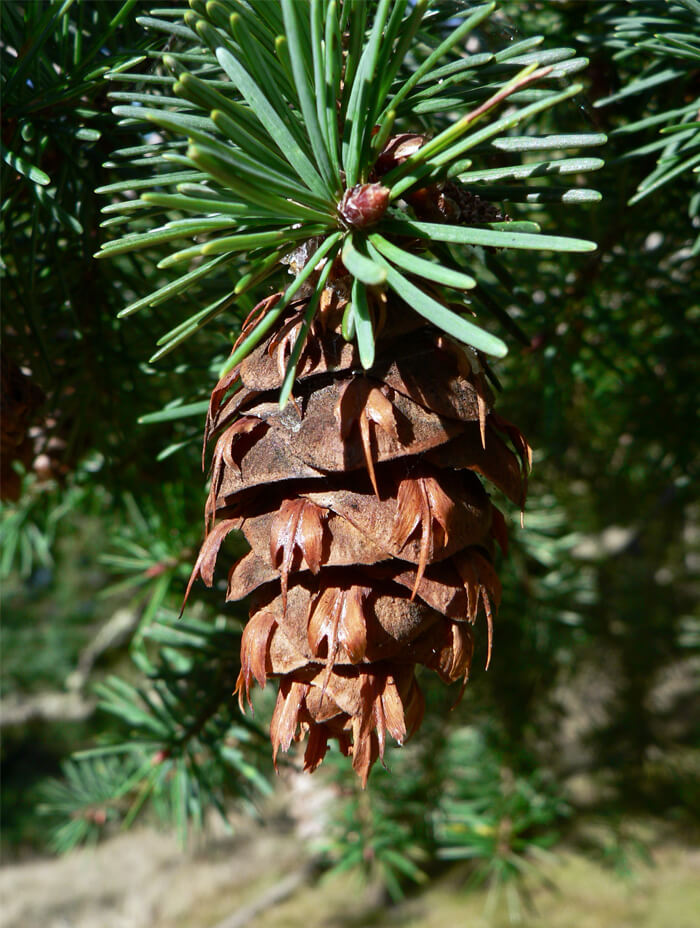
Douglas-fir cone after having dropped its seeds
Source: Commons

Douglas-fir branch showing dense foliage and mature seed cones
Source: Commons

Douglas-fir's dense foliage
Source: Commons
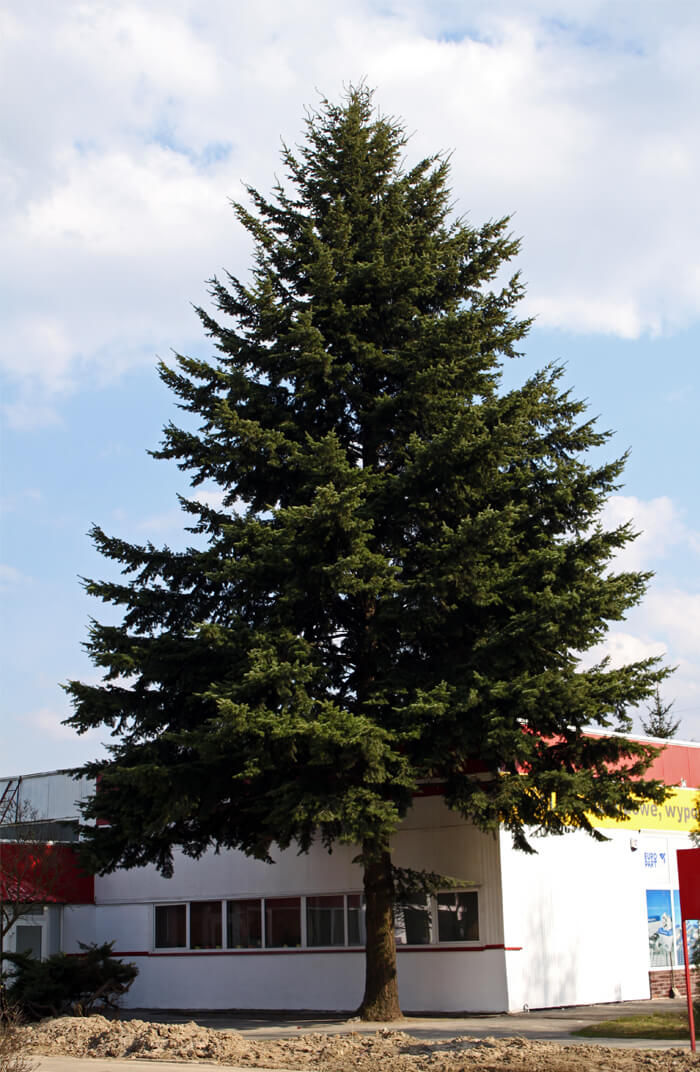
Douglas-fir tree
Source: Commons

Pseudotsuga menziesii - Douglas Fir seedling in spring of 2022.
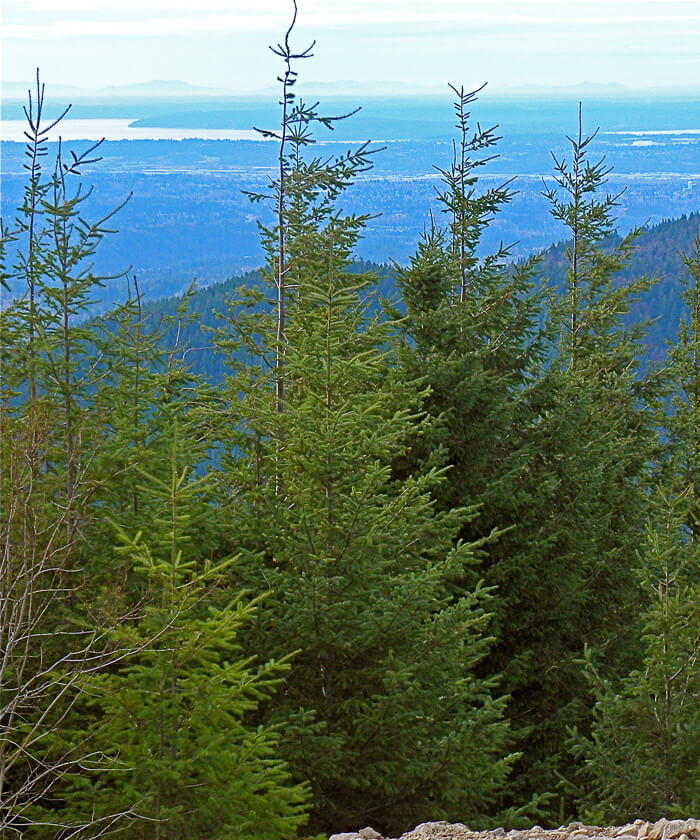
Douglas-fir trees quickly establishing new forests
Source: Commons
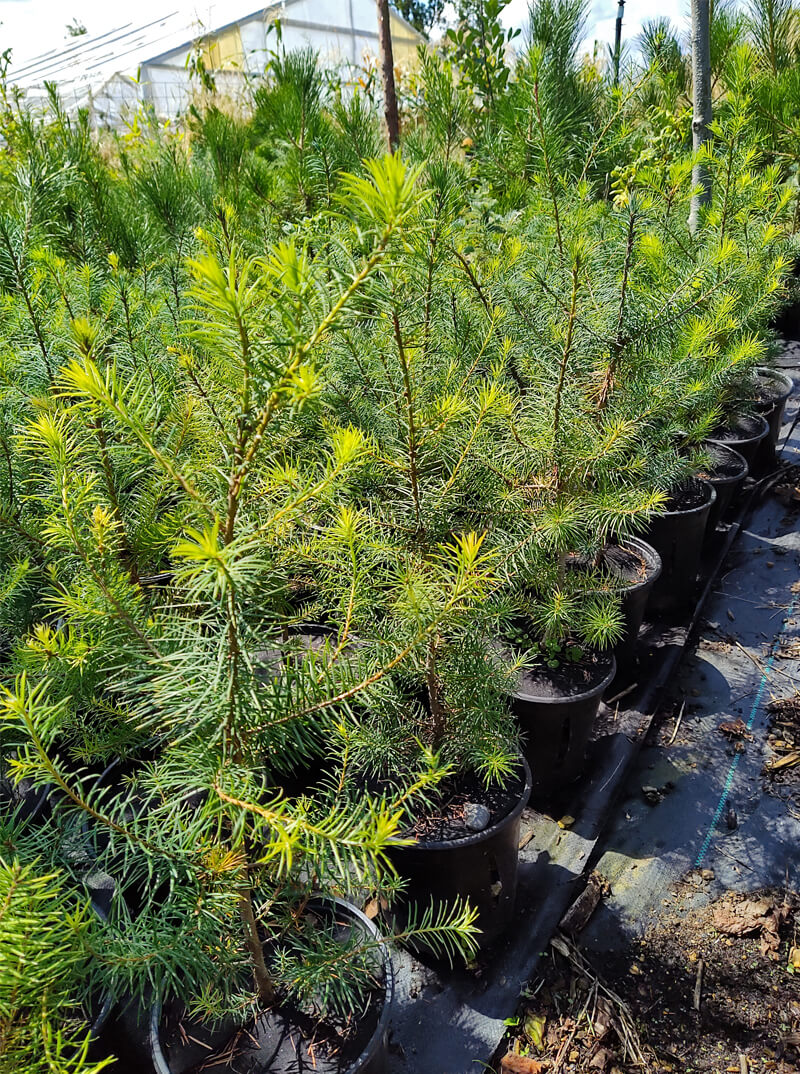
Pseudotsuga menziesii - Douglas Fir 1 gallon size
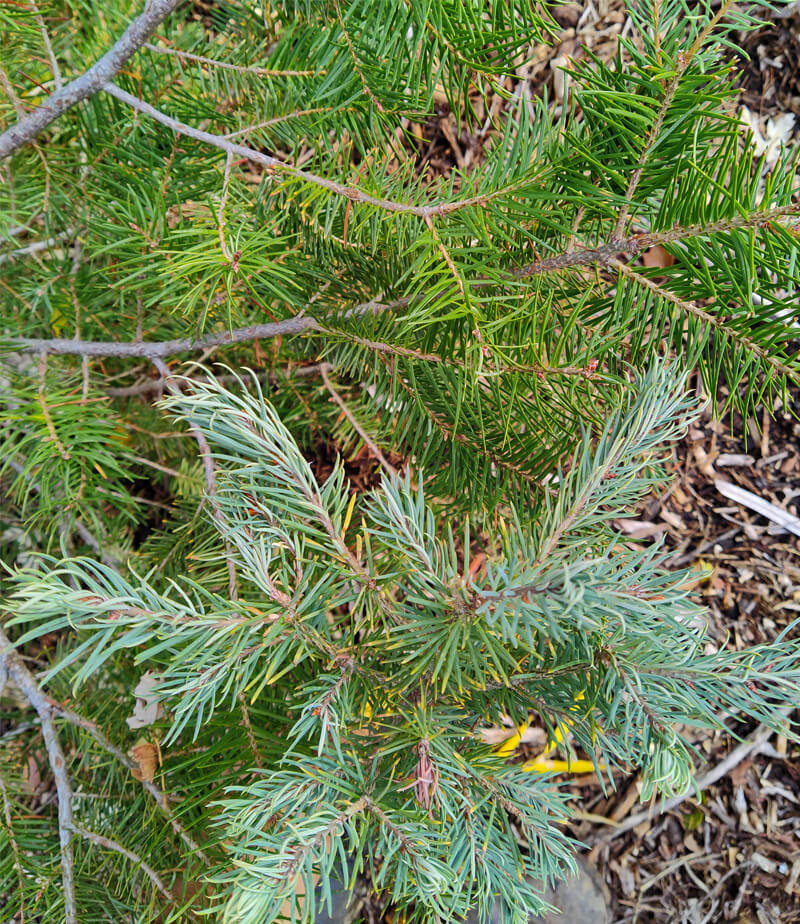
The color and style difference between the Coastal (top greener foliage) and the Rocky Mountain (lower bluer foliage) trees.
Packing Plants For ShippingMost of our plants are shipped bare root while they are dormant from late November through April and ship via the U.S. Postal Service. Bamboo plants can be shipped in their containers year-round by UPS.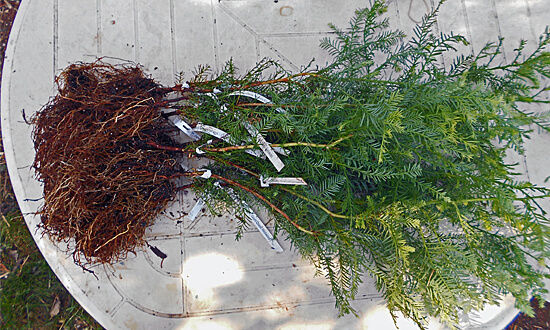 Bare root plants are soaked and wrapped together in bundles. ictured are 10x 24 inch tall Coast Redwoods. 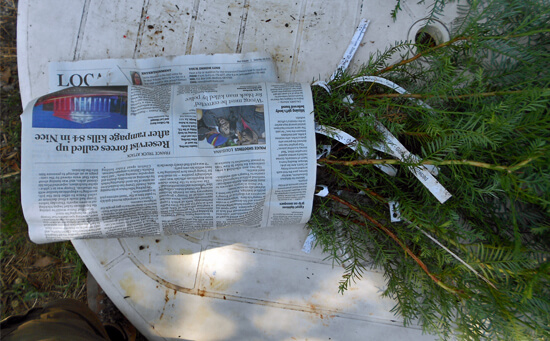 The bundled plants are wrapped in paper and labeled by variety. 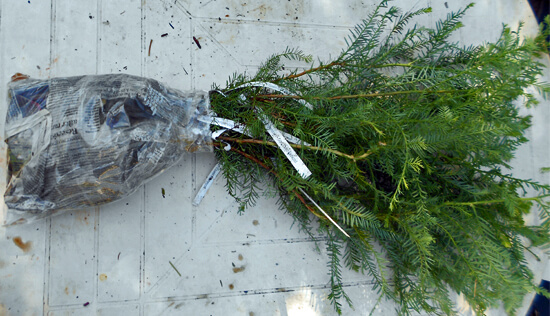 The bundle is wetted and bagged. 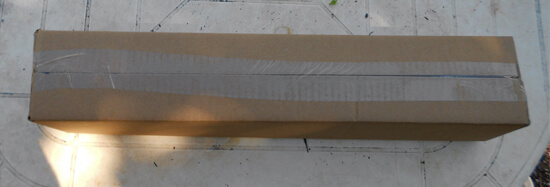 Bundles of plants are secured in long boxes. Pruning and Plant SizesWe prune both the tops and the roots of our plants at least once per year while they are growing in our nursery to ensure they develop a strong, dense form. Regular annual pruning goes a long way to ensure a healthy branching structure and this is often a missed step in many nurseries. Pruning a plant back hard after it has been neglected pruning-wise often results in an irregular branch habit or multiple leaders so we prune early and regularly instead. We also prune the roots of our plants while they are dormant which causes them to produce a much more branched structure and helps to elimate tangled masses that hinder future development. Plants that have been root pruned establish themselves much more quickly than root bound plants. Generally, hardwood plants will be pruned in the winter and conifers will be pruned in the summer.Before shipping plants we prune the tops and roots one last time. Conifers will usually have very little pruning except to balance out long branches. Shrubs are usually pruned to around 1-2 feet tall to encourage low branch development and small to medium sized trees are usually pruned to around 36-40 inches. Pruning trees at this height encourages dominant branches to begin forming around 3 feet from the ground which typically looks the best in most situations. However, if you want a tree to have branching start higher (some city codes require trees to not branch below 4 feet) we have longer boxes available. To request taller trees please contact us at least three days before your ship date. Depending on your location and the shipping routes there may be a fee for oversize package handling (usually about $15 for a 60 inch box). 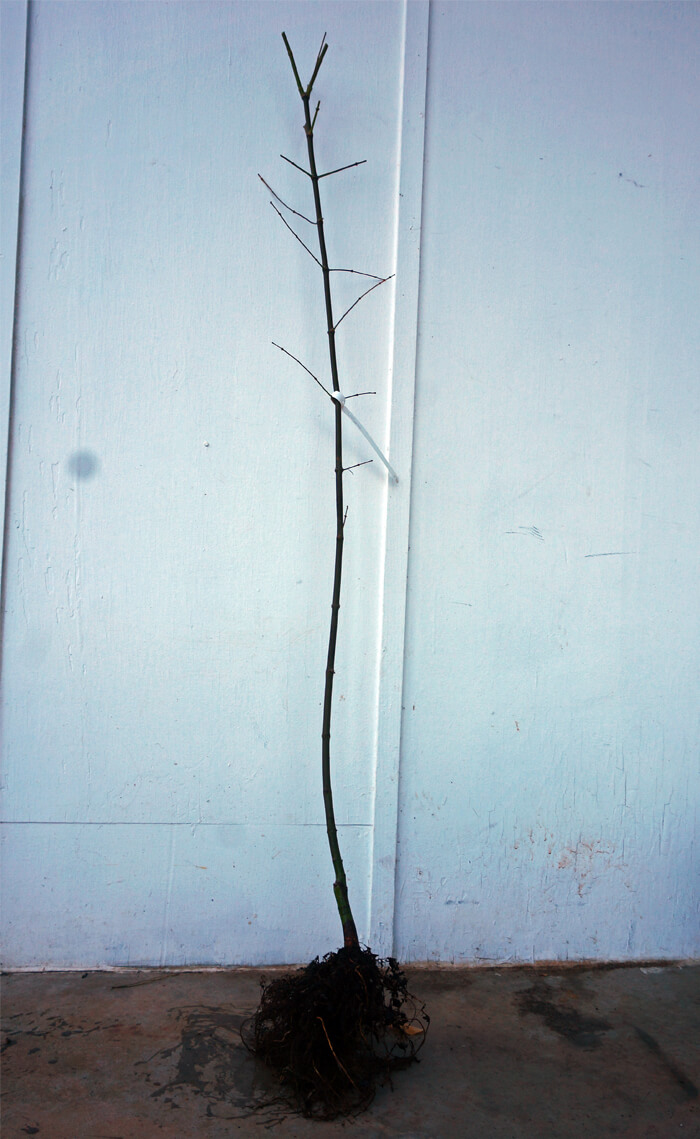 Tall trees (Oaks, Ginkgo, large Maples, etc.) are pruned to 40 inches to encourage crown development from about 36 inches and up 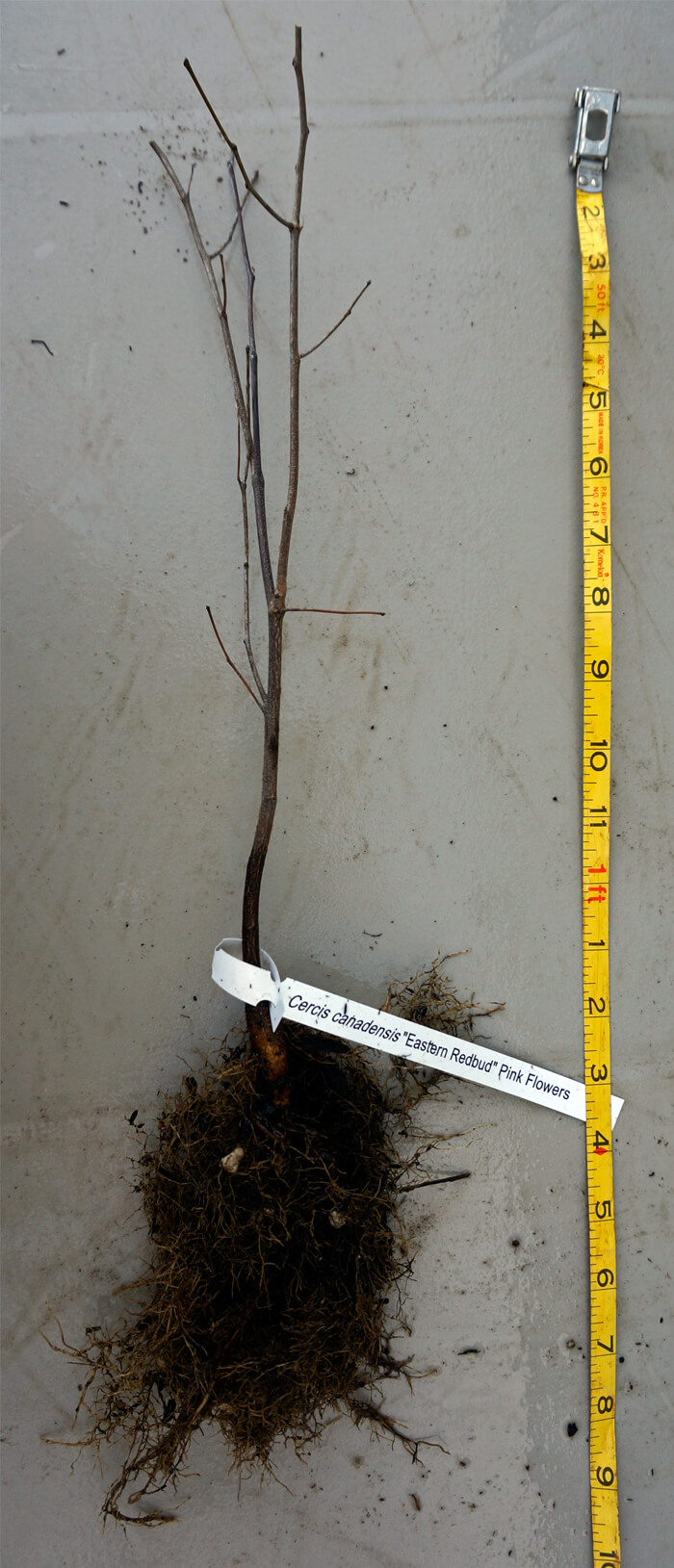 Small and medium trees (short Maples, Redbuds, Stewartia, etc.) are pruned 10-20 inches above the prune line from last year 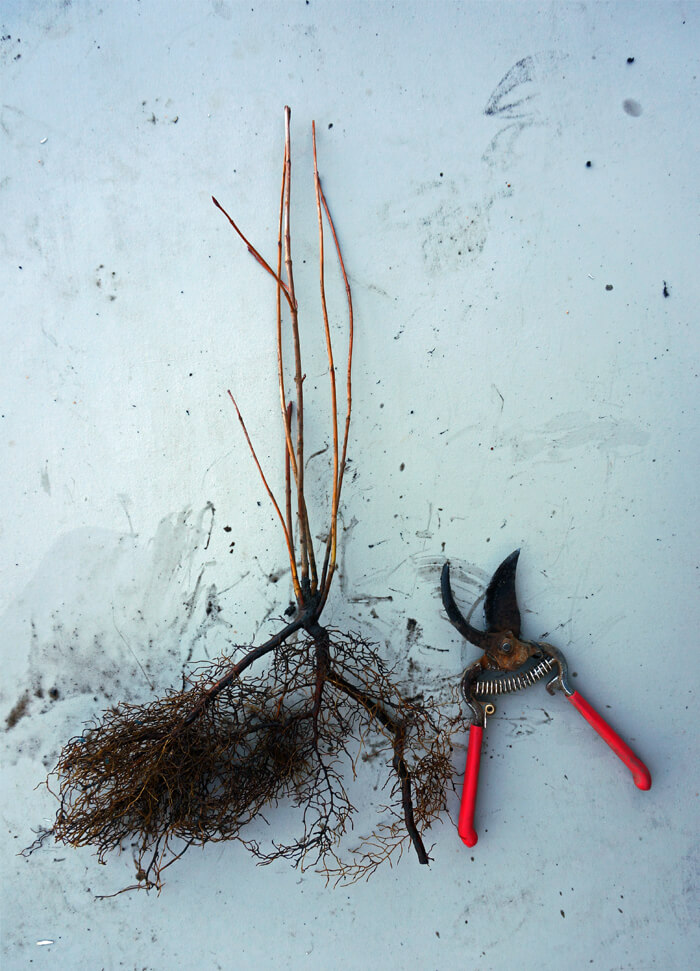 Shrubs (Weigela, Hydrangea, Viburnum, etc.) are pruned to 18 inches tall and root pruned one last time 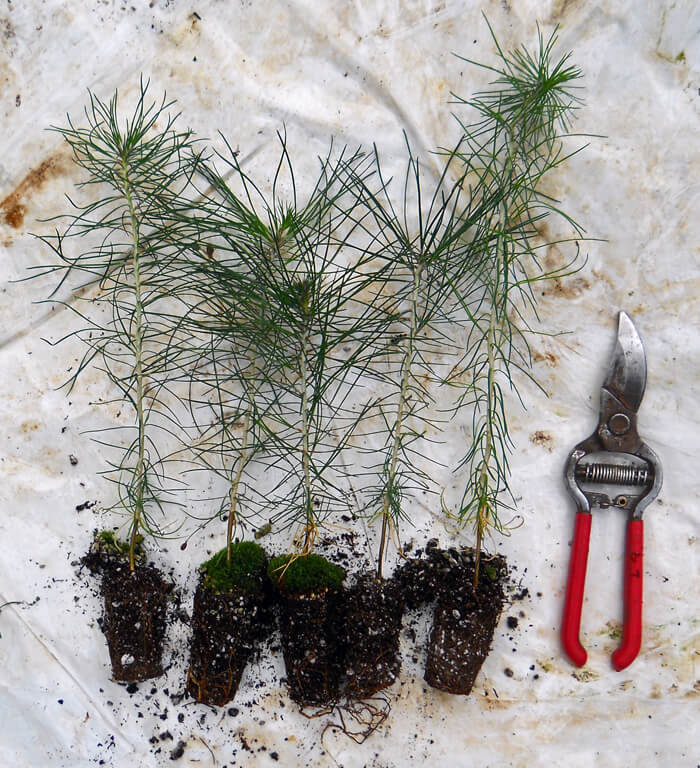 Small plug size Bamboo Plants Are Shipped In Their ContainersBamboo roots are not flexible and so plants have to be shipped in their containers. These plants are heavier and are shipped separately from bare root plants. Because they are potted they can handle longer transit times so can ship via UPS Ground instead of USPS Air Mail. Potted plants can also be shipped year-round.We regularly top our 1 gallon bamboo plants at 24-30 inches tall throughout the growing season. This results in dense, bushy foliage while allowing for economical shipping. From this size most running species will grow to 5-6 feet tall in the first spring and clumping species will usually grow to 4-5 feet tall. 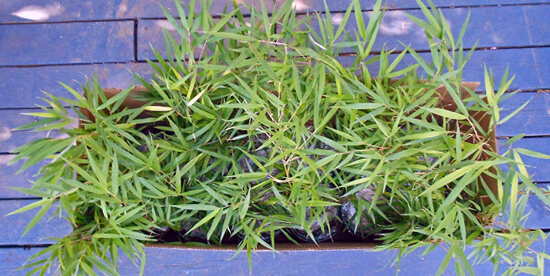 1 gallon bamboo plants strapped in and ready to be sealed. Unpacking Bare Root PlantsYou will be sent tracking details as soon as your plants are shipped. Unpack your plants as quickly as possible after they are delivered. We use two types of boxes, side-sealing and top-sealing. For boxes that are taped along the whole length you can cut the tape on either side and remove the plant bundles by cutting the tape holding the bundle to the bottom. For boxes that are sealed on the top and bottom, it is easiet to open the bottom of the box (the shipping label is at the top) and pull the bundle of plants out straight out. Check that the box is empty as there can be a second bundle of plants stuck towards the top.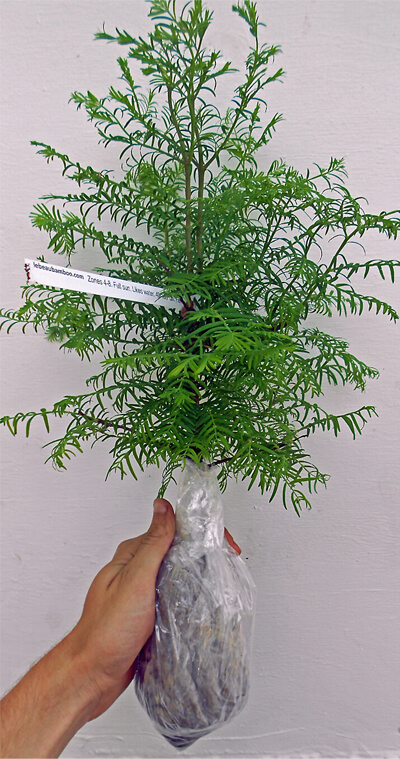 A bundle of trees. What if I am not able to plant right away?You can usually leave the plants in their shipping container unopened for 1-2 days if there were no shipping delays and you have received your plants from late November through February. Plants shipped when it is warmer can't stay in their packages for as long. |
Size Availability
Out of season.
Our main crop of most plants is available starting in late fall.
Additional batches of plugs and quarts are usually added in May.
Many of our plants are propagated in limited quantities and can sell out quickly when posted, get on the notification list below so you don't miss out. Add your email to be notified as soon as we have them back in stock:
This does NOT subscribe your email to any mailing lists, our system will only send an inventory notification message.
|

